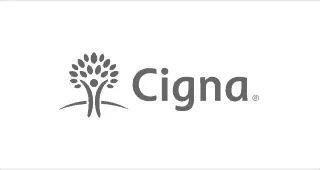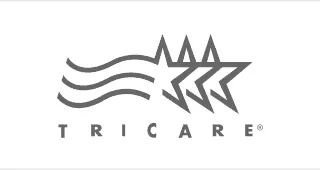Among the variety of prescription medications on the market, Xanax stands out as one of the most prescribed and also one of the most controversial. As we peel back the layers of its chemical composition, its interaction with our brain, and societal perceptions, a clearer picture emerges. At Achieve Wellness and Recovery, we aim to demystify the truth about Xanax, shedding light on its addictive nature and the precautions one must take when considering its use.
What Is Xanax?
Xanax (alprazolam) is a benzodiazepine medication that the FDA first approved in 1981. Also referred to as “xans” or “xannies,” Xanax is a brand name for alprazolam, a benzodiazepine. It is most commonly used to treat anxiety and panic disorders. Xanax can also treat other conditions, such as insomnia, muscle spasms, and alcohol withdrawal.
How Is Xanax Abused?
Xanax can be abused through snorting, smoking, or injecting crushed pills. People who abuse Xanax often take higher doses than prescribed or take the drug more often than prescribed. Some people mix Xanax with other substances, such as alcohol, heroin, or opioids, which can have dangerous consequences.
How Addictive Is Xanax?
Xanax is a very potent medication and can be addictive even when taken as prescribed by a doctor. The risk of addiction increases when it is misused or abused. When used correctly, the risk of addiction is low. However, even if used correctly, there is still a small risk of developing an addiction.
How Does Xanax Work?
Xanax works by slowing down the central nervous system. This calms the body, which can help to reduce anxiety and panic. However, it also has the potential to cause drowsiness, confusion, and impaired coordination. These effects make it difficult to drive or operate machinery while under the influence of Xanax.
Why is Xanax so addictive? Mainly because of its effect on the body and mind. Xanax slows down the central nervous system. This depresses the brain’s activity and can lead to feelings of relaxation and drowsiness. High doses can cause slurred speech, impaired coordination, and difficulty breathing.
Xanax also affects the mind by causing changes in mood and perception. It can create euphoria, which can be why people abuse the drug. Xanax can also cause hallucinations and delusions.
What Are the Effects of Xanax Abuse?
The effects of Xanax abuse can include:
Which Substances Are Commonly Abused With Xanax?
Xanax is commonly abused with other substances, including alcohol, heroin, and opioids. Mixing Xanax with other substances can have dangerous consequences.
Who is at Most Risk for Xanax addiction?
Those most at risk for Xanax addiction are:
Which Demographic is Most Affected by Xanax?
The demographic most affected by Xanax addiction is young adults. This is likely because Xanax is often prescribed to young adults for anxiety and panic disorders. Young adults are also more likely to abuse drugs, as they are still experimenting with substances and have not yet developed a sense of responsibility.
Prescription drug abuse is most common among 18- to 25-year-olds. 5 of the top 10 reasons teenagers misuse prescription drugs have to do with accessibility. Some studies indicate that senior and elderly medicated patients may be at heightened risk of developing addiction due to the number and variety of drugs they take for health reasons. 16% of abused prescriptions are black market purchases.
Prescription Drug Addiction Rates
6% of Americans over the age of 12 abuse prescriptions in a year. 12% of prescription drug abusers are addicted. There are 4.8 million Benzodiazepine annual abusers. 45.8% of American adults used a prescription drug – legally or not – within the past 30 days.
Healthcare specialists generally agree that a high rate of use and availability drives reported rates of prescription drug abuse, addiction, and, ultimately, overdose. 16.3 million people misuse prescriptions in a year. 22.6% of them, or 3.7 million people, misuse prescriptions for the first time. Prescriptions are the fifth most abused substance after alcohol (65.5% usage) and tobacco products (26.7% usage).
Women are 11% more likely than men to be prescribed medication, but men are 22.9% more likely to misuse prescriptions. Both men and women are most likely to use pain relievers, with 32.5% more men than women using them. Women are more likely to use stimulants as study aids or to increase alertness; men are more likely to use stimulants to get high or experiment. College initiates to stimulants are more likely to abuse them as study aids, whereas pre-college initiates are more likely to abuse stimulants for fun or out of curiosity.
WHAT ARE THE WITHDRAWAL EFFECTS OF XANAX?
The withdrawal effects of Xanax can be severe and can include:
If you or someone you know is addicted to Xanax, treatment options are available. Treatment typically involves a combination of medication and therapy. Medication may be used to help manage withdrawal symptoms and cravings. Therapy can help address any underlying mental health issues contributing to the addiction.
If you or someone you love is struggling with an addiction to Xanax, please get help as soon as possible. Many resources are available to those struggling with addiction, including hotlines, support groups, and treatment facilities. Getting help is the first step on the road to recovery.
WHAT’S THE DIFFERENCE BETWEEN PHYSICAL AND PSYCHOLOGICAL DEPENDENCE?
Physical dependence on a substance occurs when the body becomes used to the presence of the drug and starts to experience withdrawal symptoms when it is removed. Withdrawal symptoms can include headaches, sweating, tremors, and nausea. Psychological dependence occurs when a person feels that they need to use a substance in order to cope with their everyday life.
Xanax addiction can occur because the drug is so effective at reducing anxiety and panic. This can lead people to take larger doses than prescribed or take the medication more often than they should. Over time, this can lead to physical and psychological dependence on Xanax.
What are the Consequences of Xanax Addiction?
The consequences of Xanax addiction can be serious. Overdosing on Xanax can lead to coma or death. People who abuse Xanax are also at risk for developing other mental health disorders, such as anxiety and depression. Long-term use of Xanax can also cause physical health problems, such as liver damage.
Xanax is a highly addictive drug because it creates changes in the brain that make it difficult for people to stop using the drug. When people abuse Xanax, they are at risk of developing an addiction. Addiction to Xanax can lead to serious consequences, including overdose and death. If you or someone you know is struggling with an addiction to Xanax, get help from a professional treatment provider today.
WHAT ARE SOME TREATMENT OPTIONS FOR XANAX ADDICTION?
The treatment options for Xanax addiction include:
If you or someone you know is struggling with Xanax addiction, there is help available. Treatment can vary depending on the severity of the addiction, but there are options out there that can help. Achieve Wellness and Recovery is determined to be there for you when you need support. Xanax addiction can rob you of the best moments of your life and those around you. If you or a loved one are struggling with substance abuse, contact us today at 833-680-0142.
We work with most insurance companies. Please note we are not affiliated with or endorsed by insurance companies.
No Medicaid Accepted.

Medically Reviewed By
Nicole Rettino-Lambert LCSW, LCADC, CCS, CCTP, CSTIP
Nicole Rettino-Lambert is a dually licensed clinician with over 20 years of experience working with children, adolescents, and adults in both addiction treatment and mental health treatment. Along with extensive experience in clinical work, she has held leadership roles in both inpatient and outpatient addiction treatments centers in New Jersey. Throughout her various leadership positions, Rettino-Lambert has developed clinical programming, assisted staff in their growth and development in the clinical field, and had the privilege of helping numerous individuals on their path to recovery.
As a clinician, Rettino-Lambert specializes in addiction trauma, mental health, self-harm behaviors, anxiety, intimacy issues, sex addiction, and personality disorders. She holds certifications as a clinical trauma professional and sex informed professional. Her passion and purpose as a clinician are to help individuals find their voice, purpose, and motivation through their recovery. She takes pride in being part of the process that helps those who are fighting for their lives to achieve both sobriety and wellness.In her role as a Clinical Director at Achieve Wellness and Recovery, Rettino-Lambert works tirelessly to ensure that her staff feels supported in their roles, continues their clinical growth and development, and is empowered to become the best versions of themselves. She firmly believes that all the staff are an essential part of clients’ recovery journey and that they deserve continuous compassion, empathy, acknowledgment, and support from leadership.


















